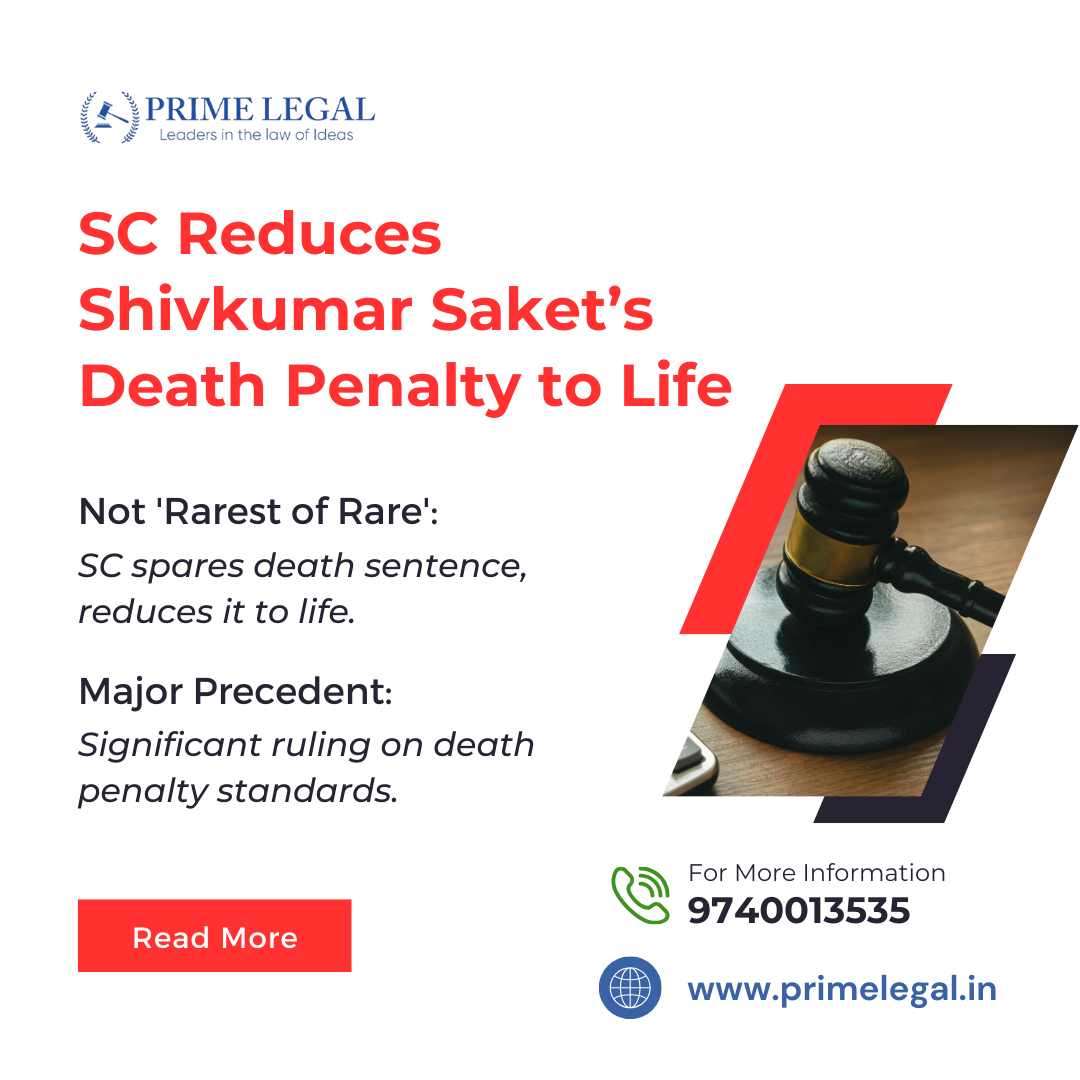INTRODUCTION
This has particularly elicited legal analysis regarding to the case of Shivkumar Saket convicted of dacoity and murder for whom the Supreme court of India reduced the death sentence to life imprisonment. The court held that though the crime was heinous it could not be clubbed as ‘rarest of rare’ cases for which the death penalty can be awarded. This decision raises awareness of the Court’s continuing reconsideration of capital punishment and its determination to make certain that this ultimate punishment is given only for the most extraordinary sorts of criminal activity.
BACKGROUND
The case in question was an offshoot of a brutal dacoity in which several persons includes Shivkumar Saket intruded into a house and murdered several members of a family. The trial court had convicted Saket to suffer death penalty for committing shocking and barbaric act which as per the law falls in the category of ‘rarest of rare’ cases only. This is the Test, which Indian courts have applied while deciding the matters relating to capital punishment, has to be such a horrible or inhuman offense that the society gets outraged. The Madhya Pradesh High Court had sanctioned the order of the trial court later on. But on appeal the Supreme Court had a different analysis to the case and whether the death penalty was justified.
KEY ASPECTS
In this the Supreme Court focused on more of the right of appellants invoking the “rarest of the rare” standard laid in Bachan Singh v. State of Punjab. It has been for a long time the rule for awarding death penalty in India, which calls for courts balancing the aggravating factors against the mitigation in a case to justify its decision on capital punishment. In Shivkumar Saket’s case although the crime committed was gruesome, the Supreme Court identified quite a number of factors which did not justify the death penalty. One of them was that Saket had no other criminal case and there were no signs he was dangerous to other people continuously. The Court also gave relevance to reformative nature of punishment and underlined that life imprisonment could be as severe a punishment that could be inflicted on Saket without loses the hope for his reformation. It is obvious that the Court is following the tendency of the Indian judiciary which trend is apparent in recent years to use death penalty scarcely and only where or when the reformation is impossible. In addition, judgment demonstrated other questions of the death penalty, such as socio-conditions that make people become criminals. This seems to have been adopted by the Supreme Court by taking an appreciable assessment of the circumstances surrounding Saket’s misadventure wherein, albeit his crime was criminal but was a result of circumstances beyond his control.This acknowledgment of systemic issues, such as poverty and lack of access to resources, highlights the Court’s growing sensitivity towards the socio-economic context of criminal cases.
Another significant aspect was the Court’s focus on proportionality in sentencing. The justices questioned whether the death penalty was truly proportional to the crime committed, given that the legal system offers other forms of severe punishment, such as life imprisonment without parole. By commuting Saket’s death sentence to life imprisonment, the Court reaffirmed that capital punishment should only be used sparingly and in cases where no other punishment would suffice.
CONCLUSION
The rejection of the appellant’s appeal for reduction of his death penalty to life and the reduction of Shivkumar Saket’s death penalty to life are all proofs of the Supreme Court and its measures taking time and great care to pass the death penalty in India. Therefore, not only the lack of relevant procedural reform has been reproduced by the Court, but also the qualitative assessments have been retained by the case, including the ‘proportionality’ of the punishment, Social and economic factors have enhanced the previous position of the Court that capital punishment is restricted only to the ‘rarest of the rare’ cases. This has remained a special hallmark of the judiciary whose willingness to hand down the death penalty has waned steadily in favor of life imprisonment as a severe enough penalty to serve its intended punitive function. The decision helps to underlines the dilemma in appointing a retribution as a form of punishment and particularly when it comes to irreversible sanctions such as the death penalty.
PRIME LEGAL is a full-service law firm that has won a National Award and has more than 20 years of experience in an array of sectors and practice areas. Prime legal falls into the category of best law firm, best lawyer, best family lawyer, best divorce lawyer, best divorce law firm, best criminal lawyer, best criminal law firm, best consumer lawyer, best civil lawyer.”
WRITTEN MY : ABHISHEK AIYAPPA


